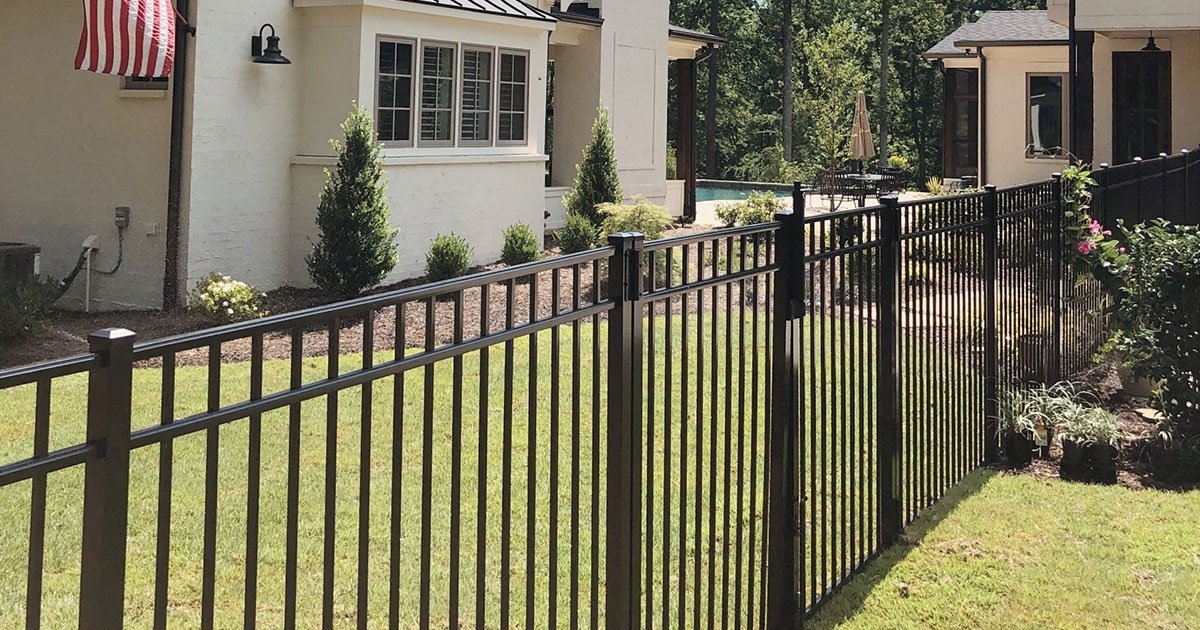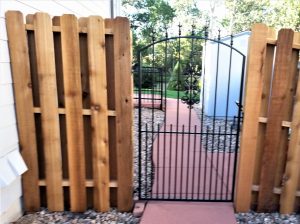All Categories
Featured
Comprehending the permit needs in your area is vital if you're taking into consideration setting up a fence around your residential or commercial property. While developing a fencing could appear like a basic do it yourself task, several laws may govern its construction depending on where you live. Falling short to obtain the proper licenses can bring about fines, penalties, or perhaps having to eliminate the fencing altogether. In this overview, we'll damage down the different permits you may need to set up a fencing and just how to guarantee your task stays certified with neighborhood legislations.
Why Are Allows Needed for Fence Installment? Licenses are needed to make sure that the fencing you construct adheres to neighborhood building codes, zoning regulations, and safety criteria. They ensure that the fence won't obstruct energies, traffic flow, or develop threats for pedestrians.
![]()
Kinds Of Permits You May Requirement. Building Authorization. A structure authorization is the most usual need for installing a fencing. If your fence exceeds a particular height (typically around 6 feet), you may need to acquire a structure permit.
Zoning License. Zoning laws regulate land usage in your area, and they usually manage where fencings can be set up, in addition to how tall they can be. A zoning license guarantees that your fencing abides with these guidelines. For instance, your fence could need to be held up a specific distance from pathways or property lines. Zoning laws can differ by community, so it's critical to inspect the details guidelines that use to your place.
Homeowners Association (HOA) Authorization. If your residential property is part of a property owners association, you might require authorization before mounting a fence. HOAs often have strict guidelines relating to the kind, style, and materials utilized for fencings to maintain an uniform appearance throughout the neighborhood.
Specialized Permits. In some cases, you may require specialized allows based upon the place of your residential or commercial property or the nature of your fencing. As an example, if your residential or commercial property is in a disaster area, you might require extra authorizations to make certain that your fence does not block water drainage or water circulation. Similarly, if you plan to construct a fencing near an ecologically safeguarded location, you may need an unique authorization to conform with ecological guidelines.
![]()
Utility Easements and Utility Firm Authorizations. Prior to installing a fencing, you must examine if your residential or commercial property has an easement. Building a fence within an easement might conflict with energy maintenance or damages underground lines.
Just How to Figure Out Which Allows You Required. Inspect with Regional Authorities. The initial step in identifying the authorizations called for is to call your regional building department or zoning workplace. They can provide certain details about what licenses are essential for your area. Lots of cities have on the internet sources or websites where you can inspect the requirements or also get a permit online.
Seek Advice From a Specialist Fencing Contractor. A neighborhood fencing professional is usually aware of the license process and regional guidelines. They can aid you navigate the requirements and guarantee that your project is compliant. Lots of specialists likewise take care of the license application procedure on your part, saving you time and effort.
Review Your Area's HOA Guidelines. If you reside in a neighborhood controlled by an HOA, make certain to examine their standards before getting any kind of permits. The HOA may require details layouts, products, or height restrictions for fencings within the area. Send your strategies to them for approval prior to proceeding.
![]()
Effects of Not Getting an Authorization. Setting up a fencing without the needed permits can lead to major effects. You may encounter fines, be gotten to get rid of the fencing, or be needed to renovate the installation to meet code requirements. Additionally, offering your home could be complicated if the fence does not fulfill neighborhood policies. Potential purchasers might hesitate to purchase a residential property with an unpermitted fence, especially if it's in infraction of zoning regulations.
Verdict. Before mounting a fence on your residential property, make certain you recognize the local regulations and obtain any type of essential authorizations. Structure authorizations, zoning authorizations, HOA authorizations, and specialized allows all play a vital function in making sure that your fence is risk-free, legal, and certified. Taking the time to research and protect the appropriate authorizations will conserve you from costly mistakes and potential lawful concerns in the future. Whether you're preparing a privacy fence or an ornamental limit, complying with these actions will certainly assist make the installation process smooth and hassle-free.
Why Are Allows Needed for Fence Installment? Licenses are needed to make sure that the fencing you construct adheres to neighborhood building codes, zoning regulations, and safety criteria. They ensure that the fence won't obstruct energies, traffic flow, or develop threats for pedestrians.

Kinds Of Permits You May Requirement. Building Authorization. A structure authorization is the most usual need for installing a fencing. If your fence exceeds a particular height (typically around 6 feet), you may need to acquire a structure permit.
Zoning License. Zoning laws regulate land usage in your area, and they usually manage where fencings can be set up, in addition to how tall they can be. A zoning license guarantees that your fencing abides with these guidelines. For instance, your fence could need to be held up a specific distance from pathways or property lines. Zoning laws can differ by community, so it's critical to inspect the details guidelines that use to your place.
Homeowners Association (HOA) Authorization. If your residential property is part of a property owners association, you might require authorization before mounting a fence. HOAs often have strict guidelines relating to the kind, style, and materials utilized for fencings to maintain an uniform appearance throughout the neighborhood.
Specialized Permits. In some cases, you may require specialized allows based upon the place of your residential or commercial property or the nature of your fencing. As an example, if your residential or commercial property is in a disaster area, you might require extra authorizations to make certain that your fence does not block water drainage or water circulation. Similarly, if you plan to construct a fencing near an ecologically safeguarded location, you may need an unique authorization to conform with ecological guidelines.

Utility Easements and Utility Firm Authorizations. Prior to installing a fencing, you must examine if your residential or commercial property has an easement. Building a fence within an easement might conflict with energy maintenance or damages underground lines.
Just How to Figure Out Which Allows You Required. Inspect with Regional Authorities. The initial step in identifying the authorizations called for is to call your regional building department or zoning workplace. They can provide certain details about what licenses are essential for your area. Lots of cities have on the internet sources or websites where you can inspect the requirements or also get a permit online.
Seek Advice From a Specialist Fencing Contractor. A neighborhood fencing professional is usually aware of the license process and regional guidelines. They can aid you navigate the requirements and guarantee that your project is compliant. Lots of specialists likewise take care of the license application procedure on your part, saving you time and effort.
Review Your Area's HOA Guidelines. If you reside in a neighborhood controlled by an HOA, make certain to examine their standards before getting any kind of permits. The HOA may require details layouts, products, or height restrictions for fencings within the area. Send your strategies to them for approval prior to proceeding.

Effects of Not Getting an Authorization. Setting up a fencing without the needed permits can lead to major effects. You may encounter fines, be gotten to get rid of the fencing, or be needed to renovate the installation to meet code requirements. Additionally, offering your home could be complicated if the fence does not fulfill neighborhood policies. Potential purchasers might hesitate to purchase a residential property with an unpermitted fence, especially if it's in infraction of zoning regulations.
Verdict. Before mounting a fence on your residential property, make certain you recognize the local regulations and obtain any type of essential authorizations. Structure authorizations, zoning authorizations, HOA authorizations, and specialized allows all play a vital function in making sure that your fence is risk-free, legal, and certified. Taking the time to research and protect the appropriate authorizations will conserve you from costly mistakes and potential lawful concerns in the future. Whether you're preparing a privacy fence or an ornamental limit, complying with these actions will certainly assist make the installation process smooth and hassle-free.
Latest Posts
Top Reasons to Choose Idaho Fence for Your Fencing Needs
Published Dec 25, 24
1 min read
Lease vs. Buy: Which Mazda Option Is Right for You?
Published Dec 25, 24
2 min read
What Allows Are Required for Setting Up a Fencing in My Area?
Published Dec 25, 24
0 min read